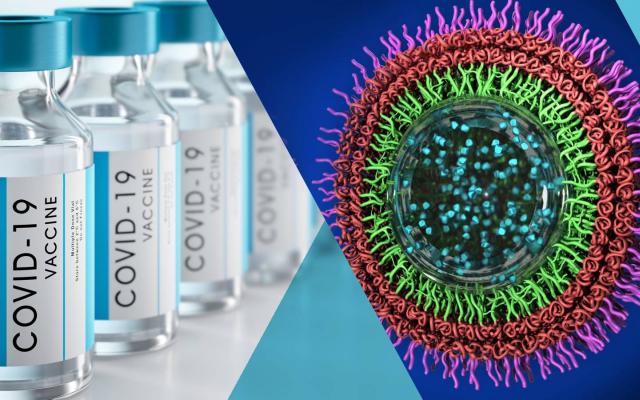
A new technology being developed by Princeton University researchers and alumni could offer a more effective and robust delivery method for COVID-19 vaccines.
Compared to current vaccines, the technology, which relies on a new type of nanoparticle, could introduce five times as much of the vaccine’s active ingredient, mRNA, into recipients’ cells. This technology will be a boon for triggering a stronger immune response while also providing a more scalable vaccine production line, according to Robert Prud’homme, a professor of chemical and biological engineering, and Shahram Hejazi, a Keller Center faculty member.
“We had shown that we could encapsulate mRNA prior to the pandemic, but when COVID struck and Pfizer and Moderna said ‘Let’s use mRNA technology for vaccines,’ we said, ‘Ok, with our technology we think we can do an even better job,’” Prud’homme said. “Our technique will allow the delivery of mRNA for COVID at higher loadings than with traditional technology.”
